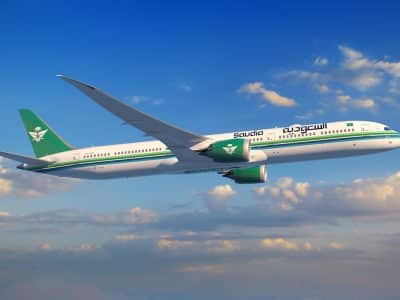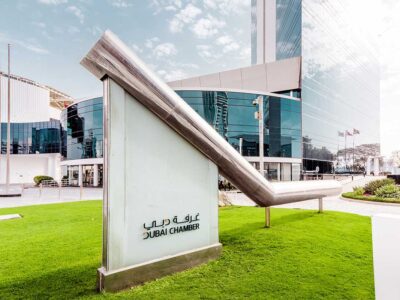No matter how many times Lebanon suffers a setback, whether it be war, political strife, or crippling economic circumstances, the country always manages to bounce back.
And, as tourists worldwide become more immune to terror attacks, natural disasters and other unnerving factors that affect travel decisions, places such as Lebanon, which has been plagued with disasters intermittently since the onset of civil war in 1975, are no longer perceived as off-limits.
These factors bode well for Lebanon, despite the current political climate, which has seen protestors dominate the streets of Solidere in downtown Beirut, an area normally bustling with locals and tourists who flock there to eat, drink and party.
Most airlines, tour operators, hotel groups and travel agents across the region unanimously agree that as soon as the country’s political issues are resolved, tourists arrivals will return to the promising levels witnessed before the war with Israel broke out last July.
And what’s more, despite the drop in leisure visitors to Beirut since November, they are continuing to promote and sell the destination, emphasising its value-for-money proposition, and for the first three months of the year, the capital city’s close proximity to the mountains where the skiing is good and there is no sign of political protest.
“We enjoyed an encouraging festive period with Christmas and Eid falling very close to one another and we also anticipate a large number of ski holiday bookings,” explains Nick Wood, general manager, Etihad Holidays.
“Lebanon is gaining a strong reputation for skiing holidays, helped by its close proximity to the UAE and Middle East countries, which mean guests can take long weekends away on the slopes.”
He says Lebanon lost market share in 2006; sales to the destination were on par with 2005, while bookings across Etihad Holidays’ entire UAE outbound programme doubled.
“[But] subject to the security situation remaining stable, we are planning an expanded programme [to Lebanon] for the coming year, because it offers such a wonderful array of holiday options for all seasons, tastes and budgets.”
Trade ties hold firm
Merja Pollok, destination development manager for the Middle East & Indian Ocean, Emirates Holidays, believes Beirut is a safe place to visit as the situation stands, despite the political protests.
“We are more old fashioned than others in terms of security and it’s our responsibility to take care of our clients and keep them away from danger,” she explains.
“At the moment it’s safe enough to go, but we keep our eyes open, listen to travel advice and are in constant contact with our DMC.”
Pollok concedes that sales for the Christmas and New Year period, which included Eid, were 30% down on the same period the previous year. To combat this, hotels in the city are giving Emirates Holidays and other key distributors some “special deals” to stimulate demand.
“Prices fluctuate according to the day and the week, but we are getting value adds such as free upgrades,” she explains.
According to Younes Ajdi, business development manager at Gullivers Travel Associates (GTA), Beirut hotels have been reluctant to drastically reduce their hotel rates to date, but if the political situation remains unstable, he anticipates that many properties will consider tactical promotions.
“We have been asking for more capacity in Beirut and so we are happy to create business for the hotels that want to work with us,” he adds.
Promotional activity
Some of Lebanon’s leading retailers have already joined forces to offer discounts at stores located in areas particularly hard hit by protests, backed up by a print, billboard and TV ad campaign.
Merchants have also request VAT exemptions from the government in a bid to give locals and visitors a better reason to spend and the Ministry of Tourism has agreed to exempt foreigners from temporary visa fees.
Spending incentives will prove attractive to GCC visitors, who are not only renowned for their love of shopping, but also their love of Lebanon.
“GCC visitors are always the first to come back to Lebanon,” confirms Nada Sardouk Ghandour, Lebanon’s general director of tourism.
“Although it’s mostly Lebanese travelling to and from here [at present], we are still getting visitors from Jordan, Egypt, Saudi Arabia and Kuwait.”
With the government in turmoil and its coffers somewhat depleted, private initiatives to promote Lebanon are more than welcome, although the Ministry of Tourism has pledged to continue with its marketing plan for 2007.
“We are maintaining our current projects,” she says. “But it’s a shame, because after World Travel Market (in November), we were starting to get back on track [after the war].”
The ministry is determined to be “honest and transparent” about the situation in Lebanon in its communications to the consumer and the trade, she adds.
“It’s safe in Lebanon. It should not be considered an adventure to come here. What you can expect is normal life,” Ghandour explains.
Visitor arrivals to Lebanon were up 49% year-on-year for the January to April 2006 period and the country had been on track to receive a 6% increase in tourist arrivals to more than 1.6 million for the year, according to the ministry.
Hotel occupancies were set to hit the 100% mark over the summer period, but plummeted to almost zero when hostilities with Israel escalated in July and August.
The Mövenpick Hotel & Resort Beirut has been luckier than most, partially due to its coastal location.
“In July and August we were very busy because we were declared a safe haven for the UN and international media,” explains Toufic Tamim, vice president sales & marketing, Middle East, for Movenpick Hotels & Resorts.
“Although compared to budget, we were still down, because Lebanon was supposed to be completely full in the latter part of July and for August.”
The hotel saw occupancies hit the 80-90% mark in the first two weeks of July, and were due to run at 100% for 45 days non-stop, he claims.
“We did run in the high 80s during the war, but with lower rates than expected, we were at least 30% behind budget,” he adds.
Post-war the hotel relied on corporate and meetings business, but Ramadan was quiet and despite a promising Eid, occupancies were lower than previous years.
“The current political situation has totally collapsed the business. On certain days the hotel is running at 10% occupancy,” concedes Tamim.
The hotel is determined to keep staff and has cut wages by 50% to retain them. Other hotels have implemented similar cost-cutting measures, he says.
“But looking at it from a positive angle, the second Eid and New Year were acceptable and I am sure demand will bounce back within two months of the political situation being resolved. Lebanon has always been able to recreate itself.”
Tamim’s advice to the region’s travel agents and tour operators is to “create a solidarity shopping package” to encourage GCC residents to take a weekend break to Beirut to pick up some high street bargains.
The hotel has pledged to continue its sales and marketing efforts by participating in major international trade shows throughout the year, including ITB and ATM, as well as hosting fam trips in conjunction with its preferred partners.
Jad Shamseddin, sales and marketing manager, at the Four Points Sheraton Verdun, believes this summer could “boom” if the political crisis abates and points out that Lebanon’s tourism industry and the Lebanese people have become “experts in crisis management”.
And he should know – he helped open the property just six weeks before President Rafik Hariri was assassinated on February 14, 2005.
What saved the property from near closure at the time, he says, were effective cost management measures implemented by the GM, Erik Vedsegaard, a strategy revisited since July.
“We are keeping staff to a minimum and just waiting to see what happens. If business picks up, we’ll take on more people again,” he says.
Both Shamseddin and Rita Abi Saad, operations manager, Radisson SAS Martinez Hotel, agree on many post-war trends.
They both claim the festive season was “disappointing” and business travellers are visiting Beirut and “leaving as soon as they get their job done”.
“After the war of July, the hotel performed very well and people were coming back to Beirut. We started receiving reservations – mainly from the tourism sector – for New Year and Adha, and we were expecting to have a full house during this period. But just after the murder of the minister Pierre Gemayel and the demonstration downtown, requests stopped and cancellations started coming in,” explains Saad.
The hotel is currently devising special packages to stimulate business until demand for Beirut recovers, she adds.
The InterContinental Group has also planned “a number of exciting marketing and consumer initiatives,” according to IHG’s vice president for the Middle East and Africa, Tom Rowntree.
“The details of these campaigns are currently being finalised and will be launched across Europe, the Middle East and Africa over the coming months,” he says.
However, the five-star InterContinental Mzaar Lebanon Mountain Resort & Spa has already published some winter deals encompassing special rates, complimentary extra nights and discounts on activities and facilities.
The property has also arranged a number of events to entice local, regional, and international visitors including the Mzaar Embassy Challenge, a ski competition exclusively for embassies; the lingerie fashion show held on the ski slopes; the Winter Fire Dragon festival; and other activities including TYRO (clay shooting) competitions, snowmobile trips, and snowboarding competitions.
“In order to improve our occupancy, we are currently working on weekday packages reaching out mainly to the Gulf and Levant countries,” says Joanne Zarifé, PR manager, at the resort. “We will target large corporate groups with high valued offers combining winter activities, sightseeing, accommodation and dining.”
Most Beirut hotels are optimistic about the industry’s ability to recover rapidly and several hotel groups are forging ahead with plans to open their first property in the Lebanese capital. The Ritz-Carlton Company LLC is currently looking for a suitable site and at time of press, the outside cladding was being applied to Four Seasons’ new luxury property, which is scheduled to open some time late in 2008.
Beirut routes remain buoyant
All of the region’s carriers, without exception, have been bullish about Lebanon’s future.
Emirates Airline will increase its services from Dubai to Beirut to double daily from March 25, operated on a three-class Airbus 330-200.
“We are committed to Beirut and will maintain this service,” says Hamad Obaidalla, senior vice president, commercial operations, Gulf, Middle East & Iran.
He concedes that Lebanon’s political situation has seen a “drop in load to a certain extent”, but says traffic on the route is “strong both ways”.
“Beirut is a destination for the Middle East people and Dubai for the Lebanese is very much home,” he explains.
Gulf Air has cut back its Bahrain-Beirut service to daily, instead of 10 times weekly, using an A320 instead of a larger aircraft, but Lee Shave, the airline’s vice president of marketing & sales says loads are good.
He emphasises the importance of VFR business, with Gulf Air’s services from destinations such as Australia driving business via Bahrain to Beirut.
Ziad Najjar, UAE sales development manager for MEA, which suffered $45 million losses as a result of the short war, says business has bounced back because 90% of the airline’s clients are Lebanese.
“We even put on extra flights from Dubai and Abu Dhabi at Christmas,” he says.
“The Lebanese people are used to situations like these and unless the airport is closed, they will travel.”
Kuwait’s low cost carrier, Jazeera Airways, recently introduced a daily service to Beirut, promoting one-way fares from Dubai via Kuwait from just AED 194 ($53).
Sharjah-based budget carrier, Air Arabia, is also offering competitive fares to the city, and Tim Lanestott, manager at the airline’s new leisure division, Air Arabia Holidays, highlights the value-for-money package deals available, with prices starting at AED 950 ($259) per person.
“My feeling is that the traditional GCC client to Lebanon, who wants to stay at the InterContinental Phonecia, have a chauffeur-driven car, and spend lots of money, won’t be going to Lebanon at the moment. I think Beirut currently appeals to the more adventurous traveller, and for a weekend break, it’s a credible player,” he says.
“We will offer Beirut to a client who perhaps would not look at Beirut before. Guests who have done Le Meridien Al Aqah (in Fujairah) and Al Ain for the weekend, and now want somewhere else to go.”
Getting there:
Air Arabia:
daily from Sharjah.
Etihad Airways:
nine flights weekly from Abu Dhabi.
Emirates:
double dailies, except Monday. This will change on March 25 when a double daily service on Monday will commence.
Gulf Air:
daily from Bahrain. No direct flights from Muscat.
Jazeera Airways:
from Dubai and Kuwait to Beirut, daily.
Middle East Airlines:
Abu Dhabi: five flights weekly; Amman: daily; Cairo: daily; Dammam: two flights weekly; Dubai: daily; Jeddah: daily; Kuwait: daily; Riyadh: three flights weekly.
Qatar Airways:
daily from Doha.
Royal Jordanian:
from Amman two flights daily on Sunday and Tuesday and three flights daily every other day of the week.
Turkish Airlines:
three flights weekly from Istanbul.
Visa Requirements:
GCC countries, Jordanians, EU members and US citizens are all valid for visa on arrival. There are no visa charges for visitors staying for 48 hours or less. Stays of between two to 15 days are priced LBP 25,000 (US $16) and visas for 15 days to six months cost LBP 50,000 ($32). Visit
www.general-security.gov.lb
Currency:
the Lebanese calculate prices in both Lebanese pounds (LBP) and US dollars. US $1 = LBP 1511.
Sample packages:
Air Arabia:
prices for three nights start at AED 950 ($259) per person, based on twin share, in the three-star centrally located Berkeley Hotel (Hamra Street). Includes breakfast and is valid until the end of February, subject to availability.
Emirates Holidays:
prices for a three-night package start at AED 1920 ($523) per person including return economy flights from Dubai to Beirut, bed and breakfast at the four-star Marriott and airport transfers.
Etihad Holidays:
three nights at the three-star Charles Hotel, based on a twin share, start at AED 1355 ($369) per person including Coral zone return flights from Abu Dhabi to Beirut and private airport transfers. Prices for a three-night ski package to Lebanon start from AED 2075 ($565) per person, including accommodation and transfers.
Gulf Air Holidays:
prices in February start at AED 1640 ($447) per person for three nights at the four-star Holiday Inn Beirut, including breakfast, return economy airfares from Dubai and airport transfers.
InterContinental Mzaar:
winter packages include: Ski more for less: stay four nights and get a complimentary night on a full board basis.
Ski deal:
weekday rates apply every night for customers staying seven consecutive nights.
Mzaar weekend package (10 weekends):
50% discount on parking, 20% on laundry, 30% on phone calls, 20% on selected spa treatments, 15% on snow mobile (skidoo), and five refuge ski tickets for free.
Royal Jordanian:
told ATN it was considering introducing holiday packages to Amman. Watch this space!
Wild Discovery:
offers several accommodation and excursion options. Prices for a double room at a Beirut properties range from $70 at the five-star Grand Hotel Kadri, to $221 at the Movenpick Hotel & Resort.
What to see in Beirut:
•
Raoche (Pigeon) Rock:
these huge limestone blocks are one of Beirut’s key icons.
•
The Corniche:
stretching along to Pigeon Rock.
•
National Museum:
featuring some of the most important anthropoid sarcophagi collections in the world.
•
Jeitta Grotto:
stalactites and stalagmites first discovered in the late 19th century.
•
Solidere:
featuring some of Beirut’s best shops, cafes, bars and restaurants, as well as restored Roman ruins and historical buildings.
• Excursions possibilities from Beirut include a half-day trip to the Dog River, Jeitta Grotto and Harissa or full day trips to Bcharre, the peaks and gorges of the Qadisha Valley, and the Cedars – a historic forest boasting trees more than 1000 years old.
2007 Calendar of events:
•
Al Bustan Festival:
21 February-March 25
•
Wedding Folies (wedding exhibition):
March 15 to 18
•
The Garden Show:
May 15 to 19
•
Art Deco Hometech:
May 29 to June 3
•
Baalbeck Festival:
summer – tbc
•
Beiteddine Festival:
summer – tbc
•
Byblos Festival:
summer – tbc
•
Lebanon Motor Show:
November 10 to 22.







